
Beat Seasonal Allergies This Season
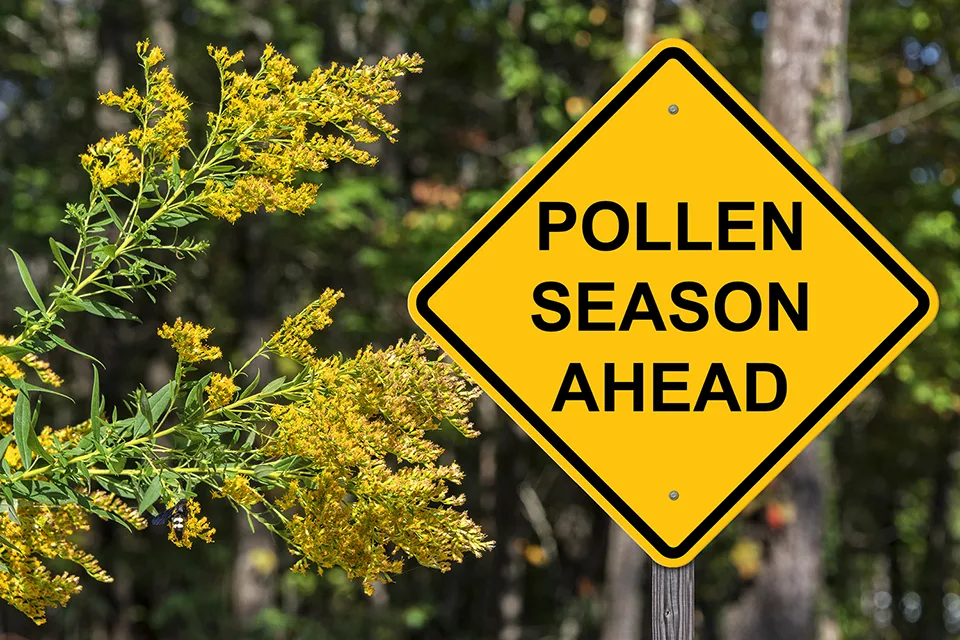
Seasonal allergies have arrived. Read on for symptom relief and to learn about preventing possible flare-ups in the future.
Spring is in full bloom in New England, revealing the splendor of gardens and tree-filled landscapes. However, accompanying this beauty is the nuisance of pollen, triggering seasonal allergies for many. Though symptoms vary, understanding common signs and treatments can offer relief to many afflicted with seasonal allergies.
If you are struggling with allergies, reach out to your local optometrist to help diagnose and treat your seasonal eye allergies. They will help tailor a plan specifically for your symptoms and lifestyle to help you enjoy this Spring season to the fullest.
What Are Eye Allergies?
Eye allergies, also called allergic conjunctivitis, occur when the eyes overreact to a substance in the environment, called an allergen. This leads to a reaction where cells in your immune system—called mast cells—release a substance called histamine. While histamine is needed to fight off the allergen, it also causes the eyelids and conjunctiva to become red, irritated, and itchy. In more severe cases, you can even experience burning and sensitivity to light. Eye allergies are often accompanied by nasal allergies as well, leading to a runny nose and sneezing. This is particularly common with seasonal allergies.
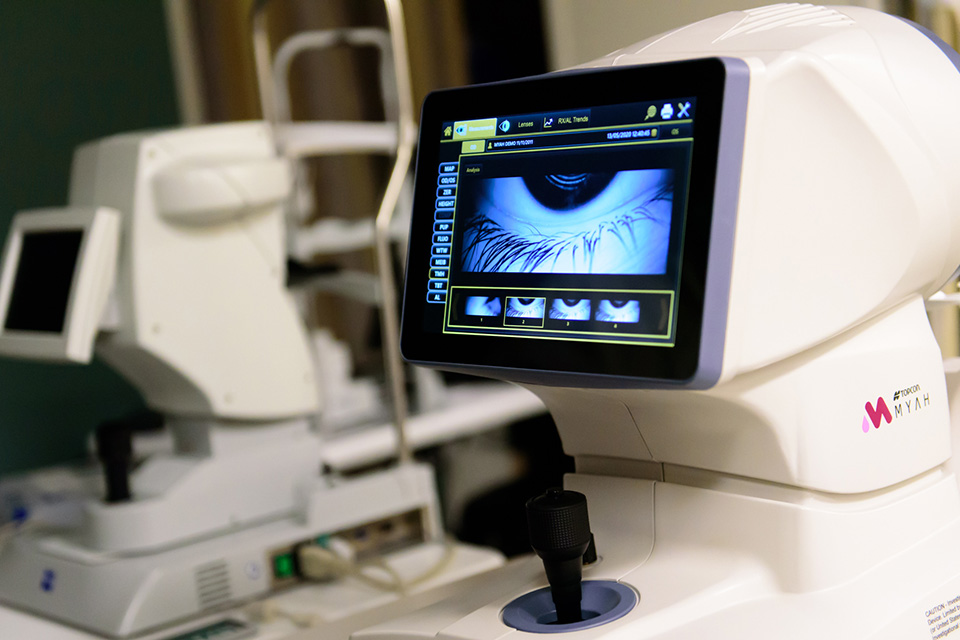
What Causes Eye Allergies?
There are many different causes of allergies including:
- pollen
- dust
- pet dander
- food
- certain medications
Even preservatives found in some artificial tear eye drops can result in an allergic response. It is important to note that an allergen does not need to come in direct contact with the eyes to cause eye allergies.
If you are experiencing any symptoms typical of eye allergies, make an appointment with your optometrist. In order to diagnose allergic conjunctivitis, your eye doctor will use a slit lamp microscope to look for the cause of swollen blood vessels and redness of the eyes. Detailed questions about you and your family’s medical history will be asked. You are more likely to have allergies if both your parents have allergies.
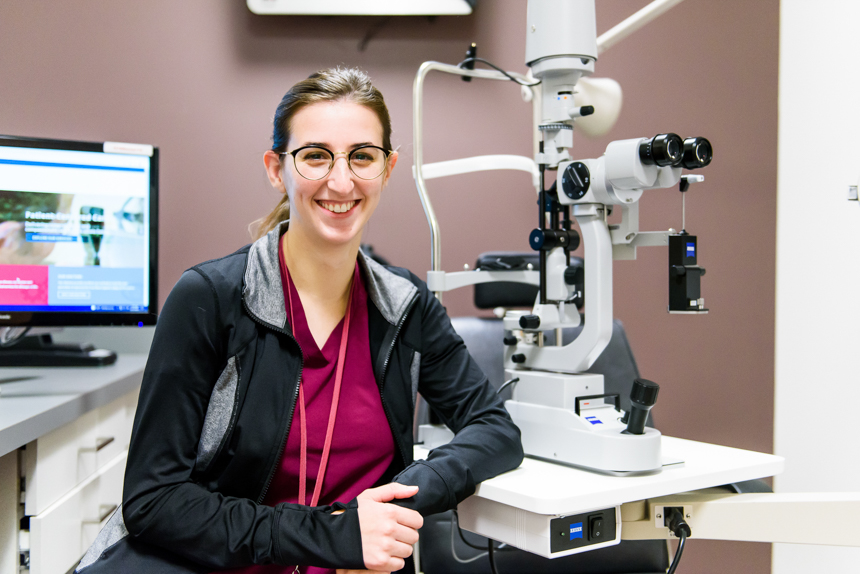
Is it Dry Eye?
The symptoms of ocular (eye) allergies can appear similar to those of dry eye, and in many cases people can experience both simultaneously. “If you spend many hours a day on a screen for work, school or as part of your daily routine, you may be at risk for worsening dry eye and concurrent ocular allergies,” explains Dr. Thomas Andrea. We recommend a thorough evaluation to consider if one or both of these is causing symptoms such as decreased comfort on screens, transient blurry vision, itching, eye pain, redness or more. Luckily there are treatments for dry eye and allergies, but the right one requires an evaluation with your optometrist.
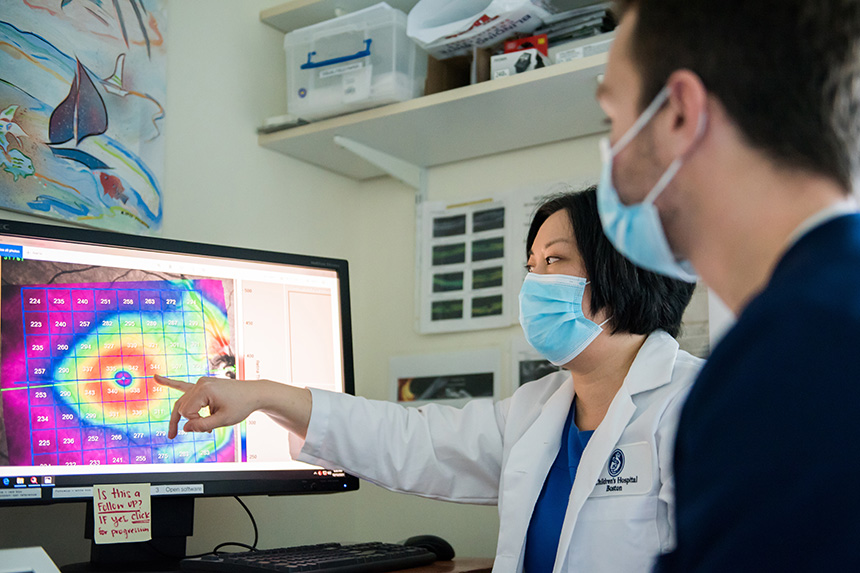
How To Treat Eye Allergies
If you know the source of your eye allergies, an effective treatment is to avoid or limit exposure to the known allergen. If your allergies tend to occur in the Spring, it’s likely that you have an allergy to pollen.
Helpful Solutions:
- Keep windows closed
- Use air conditioning during the warmer months
Keep your air conditioning unit clean to avoid cycling of allergens indoors. - Avoid window fans as they tend to draw pollen inside your home
- Avoid going outdoors when pollen counts are highest: mid-morning and early evening
- Wear sunglasses or regular eyeglasses
They can act as a barrier and prevent pollen from getting into your eyes
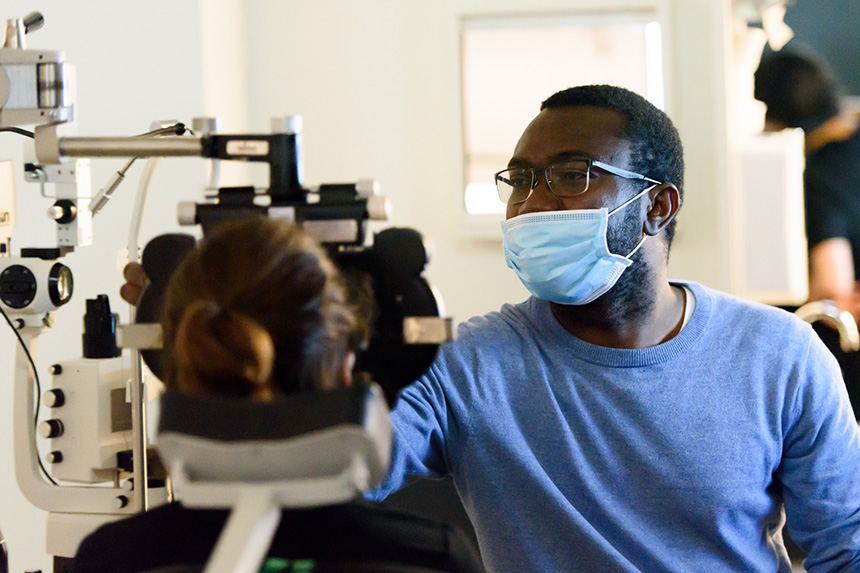
Contact Lenses
“For individuals wearing contact lenses who also suffer from allergies, it is often beneficial to limit how much time you wear your contact lenses and to change to a daily replacement lens,” recommends Dr. Jennifer Liao. “This can be beneficial even if the change is temporary and only during allergy season. Allergens can accumulate on contact lens surfaces, which worsen ocular allergy symptoms. Using daily replacement as needed limits allergen accumulation, which can reduce ocular allergies.”

Eye Drops
Mild allergy symptoms can be relieved with over-the-counter eye drops:
Artificial tear drops can provide short-term relief by lubricating the eye to soothe irritation, as well as by washing allergens out of the eye. These drops can be used up to six times per day if they contain preservatives. There are also preservative-free options which can be used as often as you need.
Decongestants work to reduce redness in the eyes. Some decongestants include an antihistamine, which can reduce itchiness as well. These drops should not be used for more than three days as they can cause a rebound effect and increase redness and swelling. Decongestants are also not recommended if you have glaucoma.
Prescription eye drops can also be prescribed by your eye doctor to treat eye allergies.
Prescription eye drops include:
Antihistamine eye drops reduce itching and redness quickly, but the effects only last a few hours. You will need to use these drops frequently throughout the day to experience continued relief of symptoms
Mast cell stabilizer eye drops prevent the release of histamine which causes itchiness and the allergic reaction, however these drops need to be used before exposure to an allergen in order to be effective.
Combination antihistamine and mast cell stabilizer eye drops are used once or twice per day and provide fast, long-lasting relief of allergy symptoms.
Corticosteroid eye drops can be used to treat allergies which are chronic and severe, causing significant itching, redness and swelling. These eye drops can cause an increased risk of glaucoma, cataracts, and infection, so they should only be used long term under the supervision of a doctor.
Oral antihistamines are available as both over-the-counter and prescription medications. They can help relieve itchy eyes but can make your eyes feel even more dry and potentially worsen allergy symptoms.
Allergy shots (immunotherapy) can be used if allergen avoidance and medications are ineffective. Tiny shots containing small amounts of the allergen are administered. The dose gradually increases to improve your body’s tolerance to the allergen.
More NECO News


